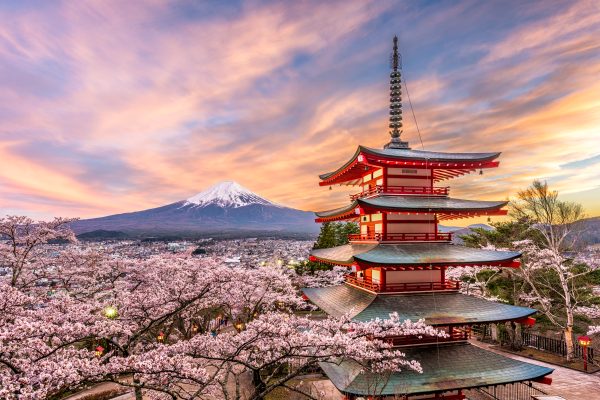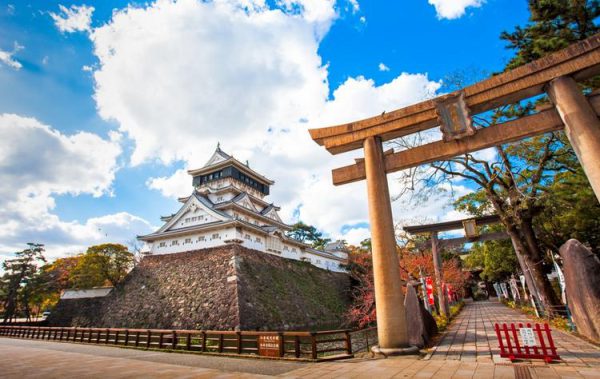SINGAPORE, 11 January 2024: January is typically the busiest month for people looking to book holidays and experts at JRPass have compiled their top tips to help tourists navigate common etiquette and practices when visiting Japan.
When visiting a different country, you’ll want to learn key common phrases to help you get by. But it’s not just language skills that visitors should think about ahead of their trip, as etiquette and expectations can also vary greatly as you travel from country to country – and Japan is no exception.



Tips on behaving when visiting Japan
Covid Etiquette and Regulations
Although other countries had relaxed rules around Covid some time ago, it wasn’t until earlier this year that Japan’s government significantly eased Covid rules and mask guidelines. Now, visitors to the country no longer need to provide a clear Covid test or proof of vaccination before entry into Japan.
That said, when it comes to masks, although there is currently no mandate from the government, it is still common to see many people in Japan wearing masks, especially in crowded places and on public transport.
Ultimately, it is up to each individual how they choose to behave in regard to Covid-19 measures, and there is a mixture of attitudes and behaviours across the population in Japan.
Greetings and Bowing
The customs for greetings in Japan look noticeably different than those in most Western countries, and bowing is the most common Japanese greeting, ranging from a nod of the head to a deep bend at the waist.
Bowing is not one size fits all in Japan: there are different types for different situations depending on context, social status, age, and more. For example, a bow of the head (similar to a nod) may suffice in more casual situations.
If you aren’t sure what type of bow is required in a given situation, don’t panic. Tourists are not expected to know the intricacies of the bowing customs in Japan. You will be able to follow suit with those around you, and after some time, you will likely be choosing the appropriate bow without even thinking about it.
Restaurant Culture and Table Manners
Although eating out in Japan is a different experience from traditional Western restaurants, you will pick up the customs and learn as you go. However, here are some simple pointers to help get you started.
Many Japanese restaurants will have traditional seating, consisting of low tables and cushions on the tatami floor. Take off your shoes before stepping onto the tatami floor, and avoid stepping on any other cushions.
Before the meal, a hot steamed towel (“oshibori”) is offered and should be used to clean your hands (not your face).
It is common to wait until everyone has received their food and then start the meal with the phrase “itadakimasu” (“I gratefully receive”).
When eating from a small bowl, picking this up with your hand and bringing it closer to your mouth is good manners.
Important chopstick rules
Never stab your food.
Don’t place chopsticks upright in the bowl (this ritual is reserved for funerals).
Use the opposite end of your chopsticks to serve yourself from a communal dish.
Don’t point at things (dishes or people) with your chopsticks.
Etiquette in the Street
Avoid loitering and blocking the flow of traffic, especially on busy streets. If you must stop, move to an area that will not disturb the flow. This is especially important if you have lots of luggage taking up space.
It’s considered bad manners to eat or drink whilst walking in Japan. Instead, stop and take a break while eating; many places (including many convenience stores) have designated places for you to stop and eat.
This rule also applies to smoking Whilst walking: it is common courtesy to go to a designated smoking area, as this is the most respectful to those around you.
Keeping the streets clean is a point of pride in Japan, and you should hang on to all your rubbish until you find a bin or get home. Smokers often even carry portable ashtrays (available at convenience stores) to dispose of cigarette butts where cigarette bins are not available.
Whilst it may be tempting in today’s photo-obsessed culture, refrain from approaching geishas and maikos for selfies in the street. They are working and often hurrying from one engagement to another, and as such, it is very disrespectful to hold them up to get a photo.
Another golden rule to remember in Japan; don’t blow your nose in public, as it is seen as very rude.
Travel & Public Transport
Travelling by train or via the subway system is the most common method of getting around in Japan, and both etiquette and rules surrounding train travel in Japan can be quite different from what you’d experience in other countries.
Here are the key things to remember when using Japan’s train systems.
When moving around, always follow the traffic flow – don’t worry, there tend to be arrows or signs to help point you in the right direction.
Politeness is key when travelling by train, so ensuring you’re paying attention when walking around, waiting politely to board the train, and generally being observant of your surroundings is vital.
If you are occupying priority seating, you must give up your seat and respect the rules should someone elderly, disabled, or pregnant board the train.
While taking phone calls or playing on your phone is widely accepted in some countries, this is certainly not the case in Japan. As such, you should keep your phone on silent, avoid taking calls when onboard and keep any noise to a minimum.
Much like talking on the phone, conversations with your travel companions should also be done at a low volume level.
Eating and drinking are also only widely accepted if travelling via the bullet train.
Being mindful of others, especially regarding space, is essential. You should only take up one seat on a train to accommodate your belongings.
JRPass founder and owner Haroun Khan commented: “Adjusting to a world of new etiquette and customs may seem initially confusing as a visitor to Japan, but it isn’t something that should deter you from visiting this beautiful country.
“Experiencing a different culture to your own is an exciting opportunity and one to jump into. Japan is an incredibly welcoming place, and no visitor is expected to know the ins and outs of every unique custom; however, learning some basic etiquette is always appreciated.
“Of course, these are just some of the many common courtesies and rules followed when in Japan, and the country has many other fascinating rules to keep in mind when travelling around there, so we’d encourage you to do your research before you visit.”
Research and content commissioned by JRPasss https://www.jrpass.com/.






